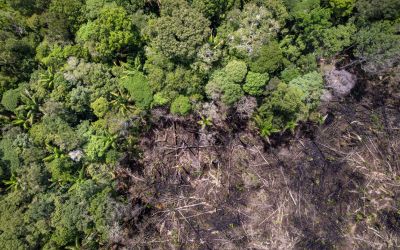Part 2: Beyond business-as-usual - Sustainable Investment game changers
Business-as-usual is not an option, so Climate Action asked a range of sustainable finance experts: What game changing ideas can take sustainable investing to the next level?

Sustainable investing is on the rise globally, but it's clear that investment levels are nowhere near where they need to be for global climate and sustainability goals to be met.
Business-as-usual is not an option, so Climate Action asked a range of sustainable finance experts: What game changing ideas can take sustainable investing to the next level?
Wim Van Hyfte, PhD Global Head of Responsible Investments and Research, Candriam:
We urgently need a common language to speak about ESG. The European taxonomy, with all its likely flaws and the criticisms it will no doubt generate, could mark the beginning of a response.
Once the investment community will have a common understanding of what constitutes sustainable activity, we can start building products, standards and labels around this definition. I have the conviction that in Europe there is a vast pool of investor assets eager to support the environmental transition, in a way that is economically sensible, but remains held back by a lack of mutually accepted standard.
The headline growth in assets managed sustainably that we have witnessed over the last 10 years in Europe covers a wide array of approaches to sustainability. This is in part a good thing: diversity breeds innovation. The downside is that many investors, institutional and retail alike, feel a bit lost. A defined set of European standards could provide clarity to investors.
Valeria Dinershteyn, Sustainable Investment Specialist, EMEA, Northern Trust Asset Management:
There are several game changers I see within the Sustainability space, spanning disruptive technology, evolving consumer behaviours and new innovative investment solutions, including: -
- Technology – specifically, energy storage. We see a large number of companies in the energy and utilities sector investing in R&D for this technology. I believe energy storage, when developed to a scalable and financially viable solution, could transform the world we know today. This will solve the ever-lasting dispute of variability of renewable sources of energy and expel the necessity of fossil fuels as “the baseline” energy source.
- Consumer behaviour – Ability and willingness of millennials to change their consumer and investing habits. There is a clear willingness to pay for a sustainability premium. This forms part of one of our ESG macro trends, Population Dynamics. We see a clear development among millennials’ habits towards more sustainable products (think, elimination of plastic, plant-based meat). No wonder that in 2018, the Collin’s dictionary voted “single-use” as the word of the year.
- Innovation – incorporating both physical and transitional climate change risks and opportunities in a plethora of investment solutions. Again, not surprisingly, Climate is our reoccurring Macro theme of the last few years. The way different solutions are incorporating different climate considerations in new products might re-shape both indexes that exist now and create new active impact solutions
Stanislas Pottier, Chief Responsible Investment Officer, Member of the Executive Committee, Amundi:
The mainstreaming of ESG is becoming widespread amongst asset managers globally. Initiatives are being carried out more and more. As an example, Amundi is a member and co-founder of the Portfolio Decarbonization Coalition, launched by the United Nations and worldwide leading investors to decarbonise the portfolios of the main asset owners. We have also joined the recently launched Platform Living Wage Financials, which aims to encourage and monitor issuers to address the non-payment of living wage in their global supply chain.
These initiatives are key for changing mentalities and develop stronger sustainable investments.
Going further, more and more regulatory and political institutions are getting involved in responsible investment globally. When the private and public sectors will have set ground rules hand-in-hand, the direct impact on societies and the environment will be stronger.
Maria Lettini, Director, FAIRR Initiative
The global meat industry is ripe for disruption and we believe the rise of alternative proteins will take a healthy bite out of the traditional meat industry’s profits. Estimates now put the plant-based meat market at over $3.7bn in the US alone and annual global growth of close to 6% is predicted to 2026. And the sustainable investment community is rapidly taking notice. California-based start-up Beyond Meat last fall filed for a $100 million IPO with Goldman Sachs, JPMorgan Chase and Credit Suisse selected to lead the offer. This breakneck pace of growth combined with investment in the animal protein sector being weighed down by mounting concerns over its environmental and health impacts is drastically shaking up the meat industry and puts a spotlight on the impact sustainable investment can have.
Wim, Valeria, Stanislas and Maria are all speaking at the Sustainable Investment Forum Europe on 12 March in Paris. Throughout the day, delegates and speakers will identify and discuss what game changers are needed to spur sustainable finance. Do you have a sustainable investment game changer? Post it on social media and tag #SINVEU
Read part 1 here.






